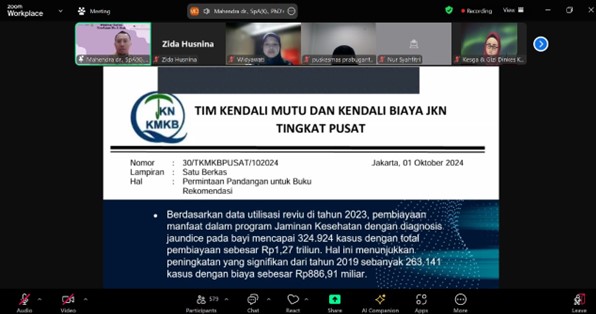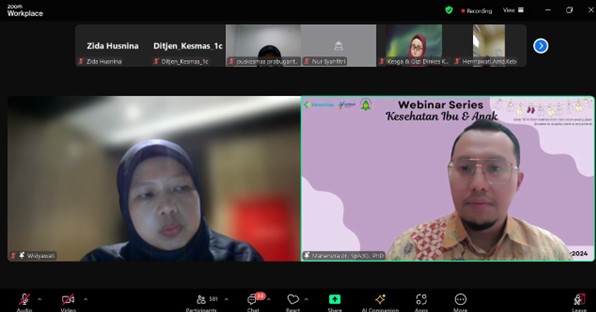UNAIR NEWS – The Ministry of Health of Indonesia (Kemenkes RI) held a virtual educational event on Tuesday, November 19, 2024, to mark World Prematurity Day. The program aimed to enhance the knowledge of healthcare professionals across Indonesia regarding the management of premature infants and the prevention of common complications associated with preterm birth.
The webinar attracted over 530 participants, including doctors, midwives, and nurses from major cities such as Jakarta and Surabaya, as well as remote areas like East Nusa Tenggara and Papua. This widespread engagement highlighted the dedication of healthcare professionals to improving neonatal care standards across the country.
In the first session, pediatric specialist Dr. Azharry SpA focused on congenital infections in premature infants. He detailed the risks posed by conditions such as TORCH (Toxoplasmosis, Rubella, Cytomegalovirus, and Herpes) and outlined preventative measures suitable for primary healthcare settings. He also emphasized the importance of immunization in safeguarding infants against infections. Participants actively engaged in discussions about managing low birth weight infants and the need for early detection to mitigate further complications.

The second session was led by Dr. Mahendra SpA(K) PhD, a pediatrician and academic from Universitas Airlangga (UNAIR), who addressed the early identification of neonatal jaundice. He described the warning signs of jaundice, when referrals are necessary, and the appropriate use of phototherapy for premature infants. The session prompted lively discussion, with participants raising concerns about managing jaundice in resource-limited healthcare facilities. Dr. Mahendra offered practical and accessible solutions tailored to healthcare workers in such environments.
Both sessions concluded with interactive dialogues, allowing attendees to share their experiences and seek advice on overcoming challenges in treating premature infants. Many participants underscored the need for ongoing education to enhance the quality of neonatal care.
The event demonstrated the commitment of healthcare workers from all corners of Indonesia to advancing neonatal health services. It also served as a platform to reaffirm the ministry’s dedication to empowering healthcare professionals nationwide. Organizers expressed hope that the insights gained during the program would be directly applied in healthcare settings, providing premature infants with the highest standard of care and improved survival outcomes.
By hosting this initiative, World Prematurity Day served not only as an opportunity for reflection but also as a concrete step toward creating a more inclusive and effective healthcare system for premature infants in Indonesia. The Ministry of Health remains committed to strengthening the country’s healthcare infrastructure to ensure the well-being of its future generations.
Editor: Khefti Al Mawalia









